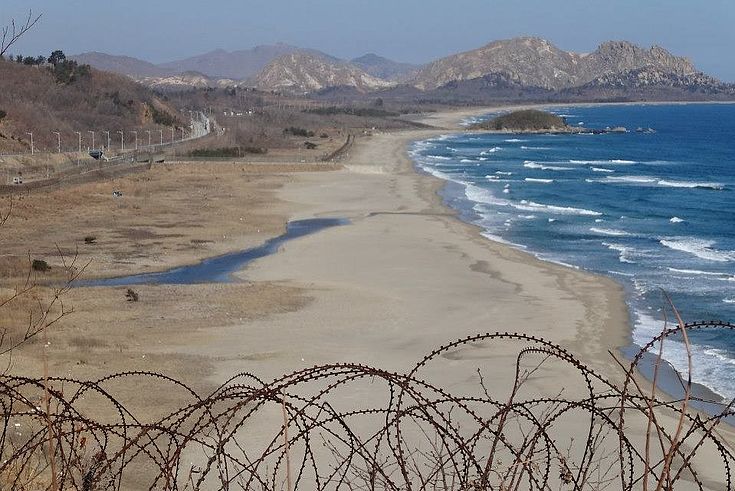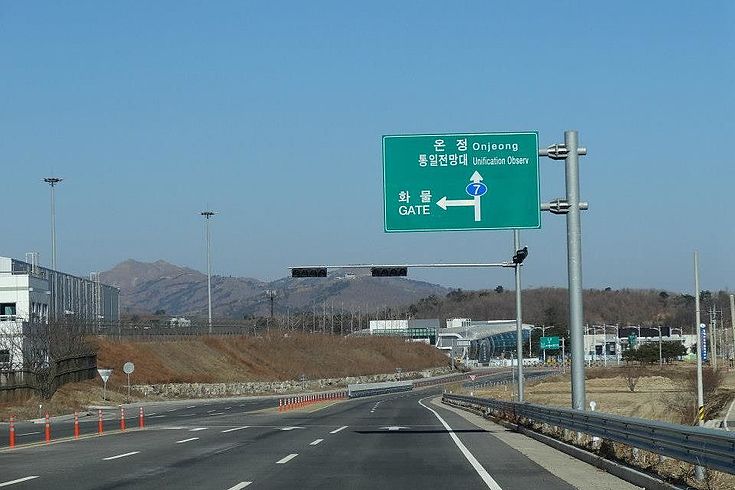Interview
HSF and the Importance of the DMZ on KBS World Radio
View from the Goseong Observatory
HSS
On October 2nd, 2018, Dr. Nial Moores, director of Birds Korea, and Felix Glenk, project manager for DPRK at the Hanns Seidel Foundation, participated in an interview in the show “Korea 24” on KBS World Radio. The main topic of discussion was the Demilitarized Zone between South and North Korea and the preservation of its widely untouched nature. Dr. Nial Moores emphasized the value of the DMZ as a symbol for peace and for the ecosystems on the Korean peninsula. He also mentioned that the region is one of the few areas which show what Korea would have been like without human development and expressed a wish for more and clearer conservation initiatives.
Highway to the Unification Observatory
HSS
Felix Glenk drew analogies to the German “green belt”, which is the area surrounding the former inner-German border, where conscious efforts have been made to preserve the nature in that area even after the German unification. Glenk suggested a similar treatment of the DMZ and that more dialogue, but also practical actions are needed from both South and North Korea in order to effectively conserve the nature in the border region. Furthermore, he talked about the work of the HSF in North Korea, where much more commitment to environmental questions and will to join international frameworks could be observed in recent years. He also expressed that the environment has become a natural connecting point for dialogue and cooperation not only between South and North Korea, but also with the HSF.
You can download or listen to the whole interview by following the link below. The interview starts at 7m 50s and ends at 19m 25s.
http://world.kbs.co.kr/service/listen_again.htm?lang=e&broad_date=2018-10-02


